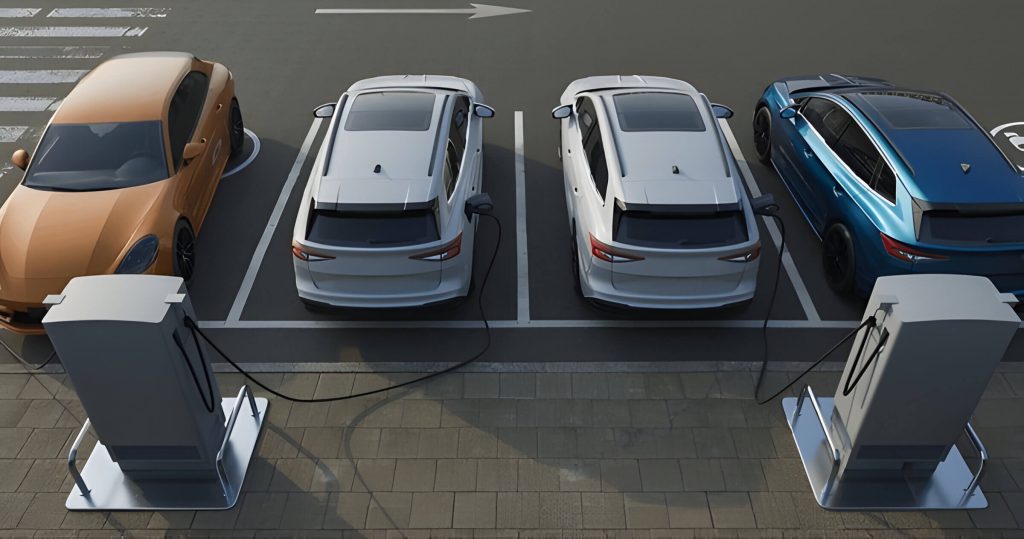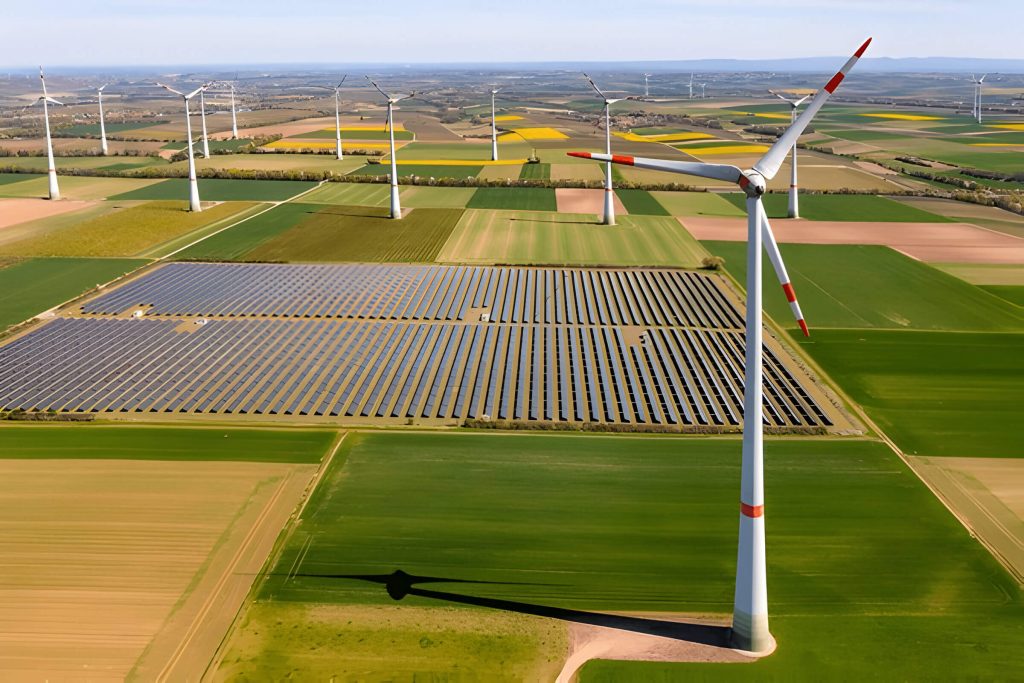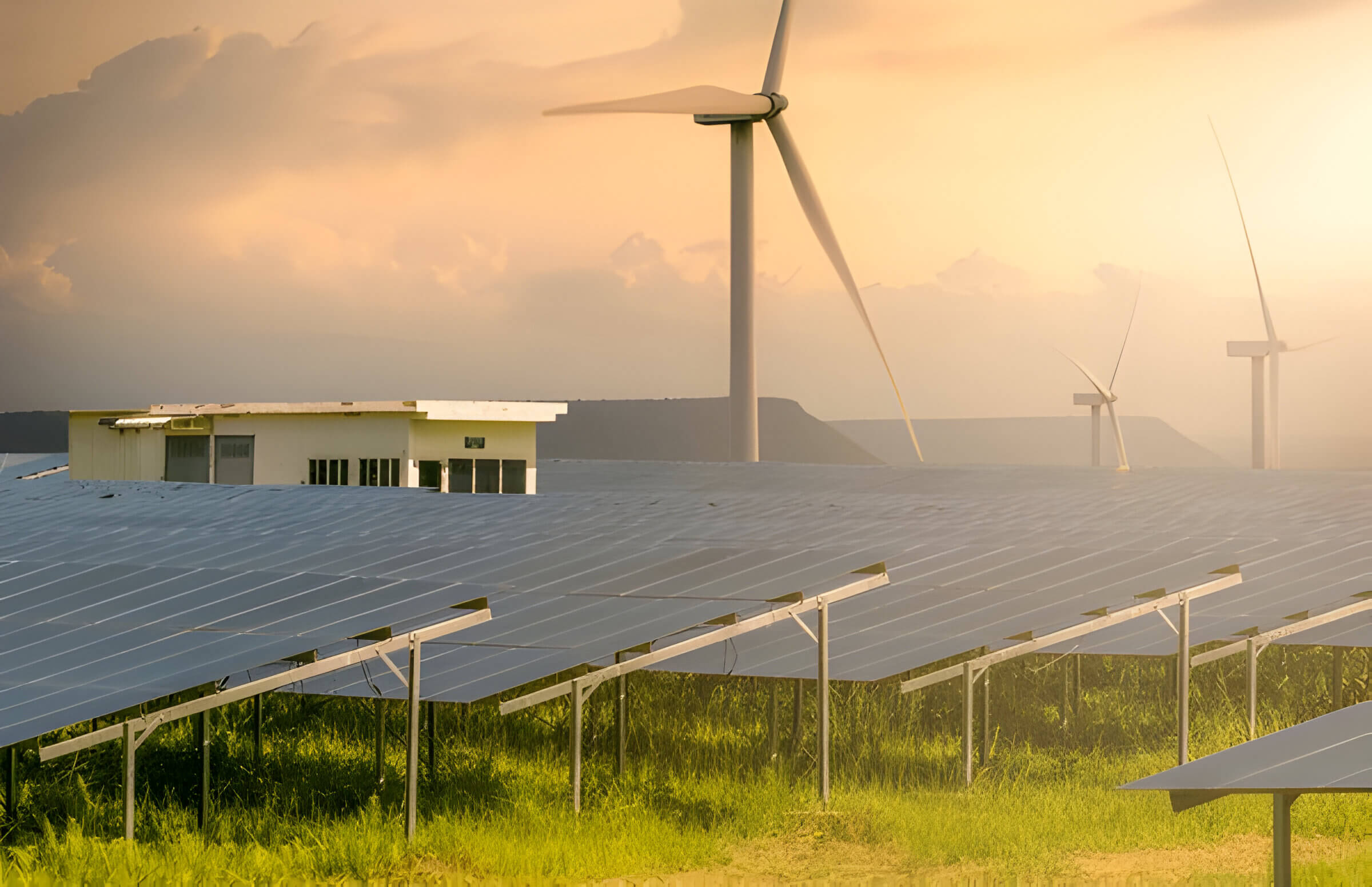Environmentally friendly technology, or clean tech, offers hope for a sustainable future. It aims to minimize environmental impacts while promoting sustainable practices across sectors. As we face climate change, these technologies provide solutions to reduce emissions, optimize resources, and mitigate global warming. From renewable energy and smart cities to AI and advanced recycling, clean tech is evolving rapidly, paving the way for a greener world.
Understanding Environmentally Friendly Technology
Environmentally friendly technology, also known as green tech or clean tech, encompasses a wide range of innovations designed to reduce environmental impact and promote sustainability. These eco-friendly solutions address various challenges, from energy production to waste management, and play a crucial role in combating climate change and preserving natural resources.
One of the most prominent areas of sustainable technology is renewable energy. Solar panels, wind turbines, and hydroelectric systems harness natural resources to generate clean electricity without producing harmful emissions. These technologies continue to evolve, becoming more efficient and cost-effective over time.
Another significant sector is energy-efficient appliances and smart home systems. These innovations help reduce energy consumption in households and businesses, lowering both utility bills and carbon footprints. From LED lighting to smart thermostats, these technologies optimize resource use without sacrificing comfort or functionality.
In the transportation sector, electric vehicles and hydrogen fuel cell technology are revolutionizing how we move. These clean alternatives to traditional combustion engines significantly reduce air pollution and dependence on fossil fuels.
Waste management and recycling technologies are also advancing rapidly. New methods for processing and repurposing materials are emerging, helping to reduce landfill waste and conserve resources. Innovations in biodegradable materials and packaging alternatives further contribute to this effort.
As we continue to face environmental challenges, the development and adoption of green technologies will be crucial in creating a more sustainable future. By embracing these eco-friendly innovations, we can work towards a cleaner, healthier planet for generations to come.
The Importance of Environmentally Friendly Technology in Combating Climate Change
Environmentally friendly technology plays a crucial role in combating climate change and promoting sustainable development. By focusing on carbon footprint reduction, these innovations help mitigate the harmful effects of greenhouse gas emissions on our planet. Renewable energy sources, such as solar, wind, and hydroelectric power, are at the forefront of this technological revolution, offering cleaner alternatives to fossil fuels.
The implementation of green technologies across various sectors contributes significantly to climate change mitigation efforts. From energy-efficient buildings to electric vehicles, these advancements help reduce our reliance on non-renewable resources and minimize environmental impact. Moreover, sustainable development practices incorporating eco-friendly technologies ensure that economic growth does not come at the expense of our planet’s health.
As we continue to face the challenges of a changing climate, the importance of investing in and adopting environmentally friendly technologies cannot be overstated. By embracing these innovations, we can work towards a more sustainable future, reducing our carbon footprint and preserving the planet for generations to come.
Key Sectors Embracing Environmentally Friendly Technology

The adoption of environmentally friendly technology is rapidly expanding across various sectors, driving significant progress in sustainability efforts. In the energy sector, green energy solutions such as solar panels, wind turbines, and geothermal systems are becoming increasingly prevalent, reducing reliance on fossil fuels and lowering carbon emissions. Sustainable transportation is another area experiencing substantial growth, with electric vehicles, hydrogen fuel cells, and improved public transit systems gaining traction in urban and rural areas alike.
The construction industry is embracing eco-friendly practices through the use of sustainable materials, energy-efficient designs, and green building certifications. These innovations not only reduce environmental impact but also improve the overall quality of living spaces. Waste management solutions have evolved to include advanced recycling technologies, composting systems, and waste-to-energy facilities, significantly reducing landfill usage and promoting circular economy principles.
Water conservation technology is playing a crucial role in addressing global water scarcity issues. Smart irrigation systems, water-efficient appliances, and advanced water treatment methods are being implemented in both residential and industrial settings. These innovations help conserve this precious resource while maintaining productivity and quality of life.
As these key sectors continue to embrace and develop environmentally friendly technologies, we can expect to see a significant positive impact on our planet’s health and sustainability in the coming years.
Innovations in Renewable Energy

Renewable energy technologies have made significant strides in recent years, offering promising solutions to our global energy challenges. Solar power has seen remarkable improvements in efficiency and affordability, with innovations like bifacial panels and floating solar farms expanding its potential. Wind energy continues to evolve, with offshore wind farms and vertical-axis turbines pushing the boundaries of what’s possible. Hydroelectric power, a long-standing renewable source, is being reimagined through small-scale and run-of-river projects that minimize environmental impact. Geothermal energy is gaining traction with enhanced geothermal systems that can tap into heat resources in previously inaccessible locations. Biomass energy is becoming more sophisticated, utilizing advanced conversion technologies to transform organic waste into clean, renewable power. These innovations are not only reducing our reliance on fossil fuels but also creating new jobs and driving economic growth in the green energy sector. As research and development in renewable energy continue, we can expect even more groundbreaking technologies to emerge, paving the way for a more sustainable and energy-secure future.
Smart Cities and Environmentally Friendly Urban Planning
Smart cities are revolutionizing urban planning by integrating environmentally friendly practices and cutting-edge technology. Energy-efficient buildings are at the forefront of this transformation, utilizing advanced materials and design techniques to minimize energy consumption and reduce carbon footprints. Green infrastructure plays a crucial role in sustainable urban development, incorporating parks, green roofs, and urban forests to improve air quality and manage stormwater runoff.
Smart grid systems are another key component of eco-friendly cities, optimizing energy distribution and enabling the integration of renewable energy sources. These intelligent networks help reduce energy waste and improve overall efficiency. Urban agriculture is gaining traction in smart cities, with vertical farms and community gardens providing fresh, locally grown produce while reducing transportation emissions.
By embracing these innovative approaches, cities can create more livable spaces that prioritize both human well-being and environmental sustainability. As urban populations continue to grow, the implementation of smart, green solutions will be essential for creating resilient and eco-friendly urban environments.
The Role of AI and IoT in Advancing Environmentally Friendly Technology
The convergence of Artificial Intelligence (AI) and the Internet of Things (IoT) is revolutionizing environmentally friendly technology, offering innovative solutions to combat climate change and promote sustainability. Smart home devices, powered by AI algorithms and connected through IoT networks, are optimizing energy consumption in households. These systems learn user habits and adjust heating, cooling, and lighting accordingly, significantly reducing energy waste.
Energy management systems in industrial settings leverage AI and IoT to analyze vast amounts of data in real-time, identifying inefficiencies and suggesting improvements. This leads to substantial reductions in energy usage and carbon emissions across various sectors.
Predictive maintenance, enabled by AI analysis of IoT sensor data, helps prevent equipment failures and extends the lifespan of machinery. This not only reduces waste from premature replacements but also ensures optimal performance, minimizing energy consumption and emissions.
Resource optimization is another key area where AI and IoT excel. In agriculture, for instance, these technologies enable precise irrigation and fertilization, reducing water waste and chemical runoff. In urban environments, they optimize waste collection routes and water distribution systems, leading to more efficient resource utilization.
Environmental monitoring benefits greatly from AI-powered IoT devices. These systems can track air and water quality, forest health, and wildlife populations in real-time, providing valuable data for conservation efforts and policy-making. By offering early warnings and detailed insights, they enable proactive measures to protect ecosystems and mitigate environmental damage.
As AI and IoT continue to evolve, their potential to drive sustainable practices and support environmentally friendly technologies will only grow, playing a crucial role in our fight against climate change and environmental degradation.
Challenges and Opportunities in Adopting Environmentally Friendly Technology
Adopting environmentally friendly technology presents both challenges and opportunities for businesses and society at large. Cost considerations remain a significant hurdle, as green technologies often require substantial initial investments. However, long-term savings and potential government incentives can offset these expenses. Technological barriers also exist, with some eco-friendly solutions still in development or lacking the efficiency of traditional alternatives. Overcoming these obstacles requires continued research and innovation.
Policy support plays a crucial role in driving the adoption of green technologies. Governments can encourage implementation through tax breaks, subsidies, and regulations that favor environmentally conscious practices. Public awareness is equally important, as informed consumers can drive market demand for sustainable products and services. As awareness grows, so does the pressure on companies to adopt greener practices.
Market adoption of eco-friendly technologies varies across industries and regions. While some sectors have embraced sustainable solutions, others lag behind due to entrenched practices or lack of suitable alternatives. However, as technology improves and costs decrease, opportunities for widespread adoption continue to expand. Companies that proactively invest in green technologies may gain a competitive edge and improved brand reputation in an increasingly environmentally conscious marketplace.
The Future of Environmentally Friendly Technology
The future of environmentally friendly technology is rapidly evolving, with several exciting trends and innovations on the horizon. One of the most promising developments is the emergence of next-generation materials, which are designed to be more sustainable and eco-friendly than their traditional counterparts. These materials are often lighter, stronger, and more durable, reducing the need for frequent replacements and minimizing waste.
The concept of a circular economy is gaining traction, with many companies focusing on designing products that can be easily recycled, repurposed, or remanufactured. This approach aims to minimize waste and maximize resource efficiency, creating a more sustainable production and consumption cycle.
Carbon capture technology is another area of significant progress, with researchers developing innovative methods to capture and store greenhouse gases. These technologies could play a crucial role in mitigating climate change and reducing the environmental impact of industrial processes.
Green hydrogen is emerging as a clean energy alternative, with the potential to revolutionize transportation and industrial sectors. As production costs decrease and infrastructure improves, green hydrogen could become a key player in the transition to a low-carbon economy.
Biodegradable electronics represent an exciting frontier in sustainable technology. These devices are designed to break down naturally at the end of their lifecycle, reducing electronic waste and its associated environmental impacts. As research in this field progresses, we can expect to see more eco-friendly electronic products hitting the market in the coming years.






